
How to Get DOE Certification?
Amazon US DOE Certification New Regulations
Recently, sellers on Amazon US have received notification emails regarding DOE compliance requirements.
According to the email, by February 18, 2025, Amazon US will update its pipeline product information policy, requiring sellers to ensure their products comply with the U.S. Department of Energy (DOE) standards.
Products that do not meet DOE standards will be prohibited from being sold. With less than a month remaining, sellers need to act quickly to comply!
A notice from the U.S. Department of Energy (DOE) dated January 15, 2025, indicates that a seller has been fined over hundreds of thousands of dollars for non-compliance.
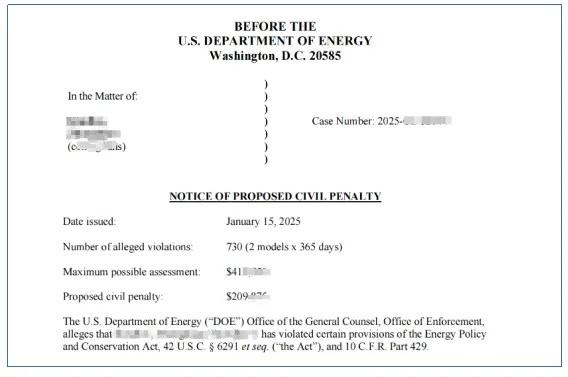
If a company violates certain provisions of the Energy Policy and Conservation Act (EPCA), the DOE will impose penalties.
The penalty is calculated based on the number of days the product was sold multiplied by the number of units sold. If the accused party fails to respond and take action within 30 days of receiving the penalty notice, they will be required to pay the fine in full.
What Products Are Regulated by DOE?
The DOE regulates the following types of products:
1. Information Technology Products: Set-top boxes, monitors, etc.
2. Power Supply Products: External power supplies, power adapters.
3. Televisions
4. Audio & Video Products: DVD players.
5. Small Battery Charging Systems: Bluetooth headsets, Bluetooth speakers, fitness trackers, dash cams, mobile phones, tablets, laptops, and other battery-powered devices.
6. Large Battery Charging Systems: Products that do not fall under small charging systems.
7. Lighting Products: LED lighting fixtures, fluorescent lamps, fluorescent ballasts, etc.
8. Transformer Products
9. Home Appliances: Refrigerators, air conditioners, washing machines, etc.
10. Motorized Products
11. Sanitary Products: Showerheads, faucets, toilets, etc.
Previously, sellers have been fined $503 per day for selling showerheads that failed to meet DOE energy efficiency standards.
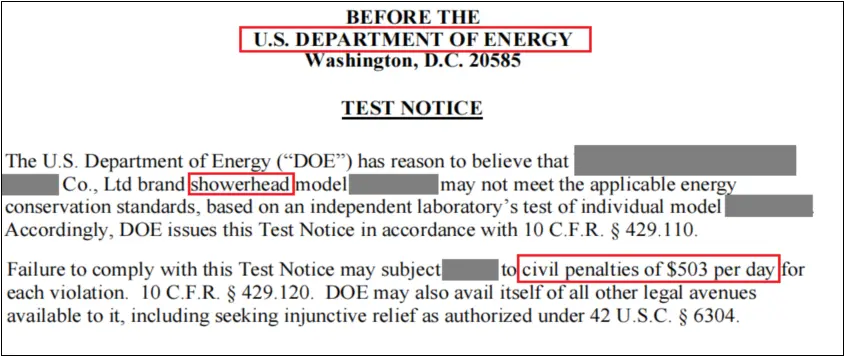
Additionally, DOE certification cannot be falsified using image editing (“Photoshopping”). If Amazon detects fraudulent DOE compliance, the product will be immediately banned from sale.
DOE compliance is verified by calculating energy efficiency data and generating appropriate energy efficiency labels. Different products require different labels to meet compliance standards.
How to Apply for DOE Certification?
The DOE certification process typically involves the following steps:
1. Submit Certification Application: Sellers must submit an application form. You can contact JJR Laboratory in China for assistance.
2. Sample Submission & Testing: Prepare the necessary samples and technical documents.
3. Laboratory Testing: The samples will be tested to ensure they meet DOE energy efficiency standards.
4. Test Report Issuance: If the product passes testing, the lab will issue a detailed test report.
5. DOE Registration: The lab will assist with registration, requiring information about the U.S. importer or manufacturer.
6. Use of DOE Mark: After certification, sellers can display the DOE mark on their products.
7. U.S. Agent Requirement: Registering for DOE certification requires providing information about an authorized U.S. agent (U.S. representative).
Processing Time
The entire DOE certification process typically takes about one month. However, since the DOE’s official review is required, the timeline may be unpredictable. Sellers are advised to allocate sufficient time for compliance.
Important Notice for Sellers
If you receive a notice from the U.S. Department of Energy, your product will remain restricted from sale even if you complete DOE certification. The restriction will only be lifted after paying the fine.
Sellers needing DOE certification should act quickly!
If you don’t know how to register a U.S. agent or apply for DOE certification, contact us for assistance to ensure compliance and avoid the risk of product bans.
Email:hello@jjrlab.com
Write your message here and send it to us
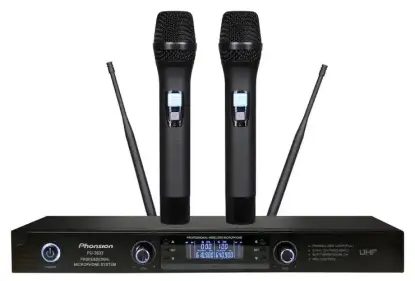 Wireless Microphone Export Certification
Wireless Microphone Export Certification
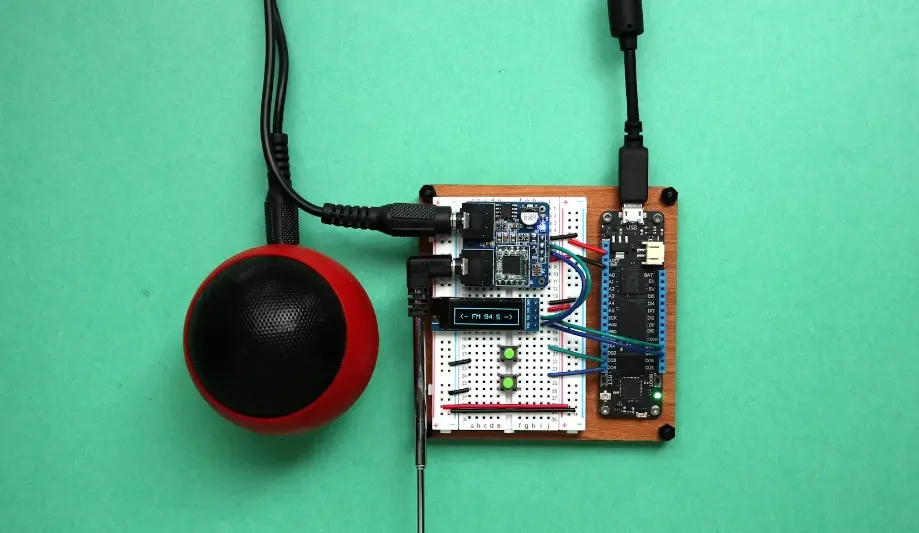 Audio-Visual Products SNI Certification in Indones
Audio-Visual Products SNI Certification in Indones
 FCC-ID: Still Needed if Module is Certified?
FCC-ID: Still Needed if Module is Certified?
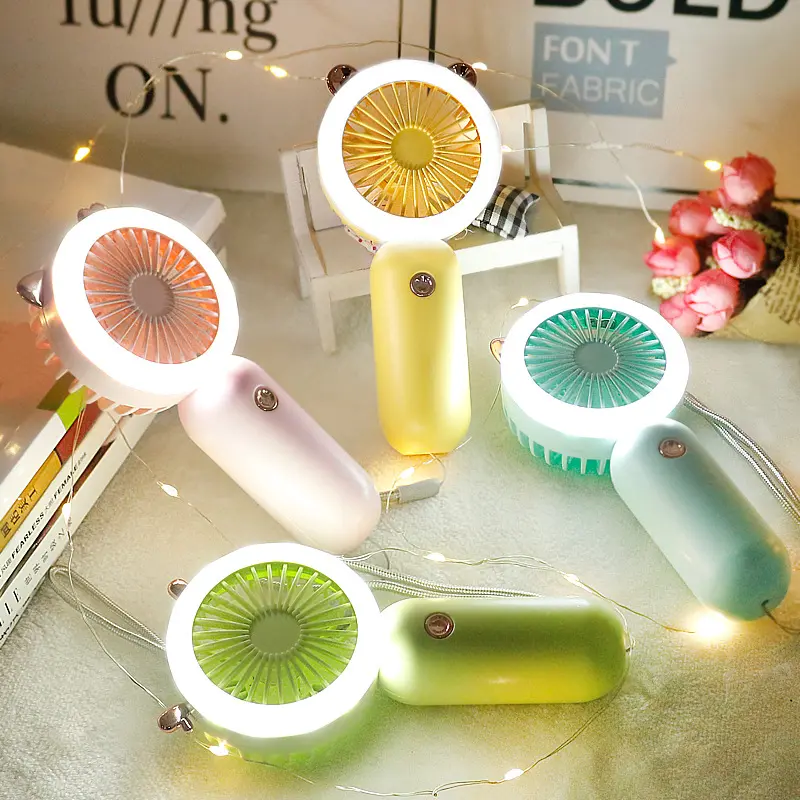 FCC Certification Fees for Handheld Fans
FCC Certification Fees for Handheld Fans
 FCC Certification Testing for Smart Lighting Produ
FCC Certification Testing for Smart Lighting Produ
 What is the ETSI EN 303 645 Testing Standard?
What is the ETSI EN 303 645 Testing Standard?
 UL Compliance and ETL Certification for LED Lighti
UL Compliance and ETL Certification for LED Lighti
 What is the IEC 60598 Standard?
What is the IEC 60598 Standard?
Leave us a message
24-hour online customer service at any time to respond, so that you worry!




